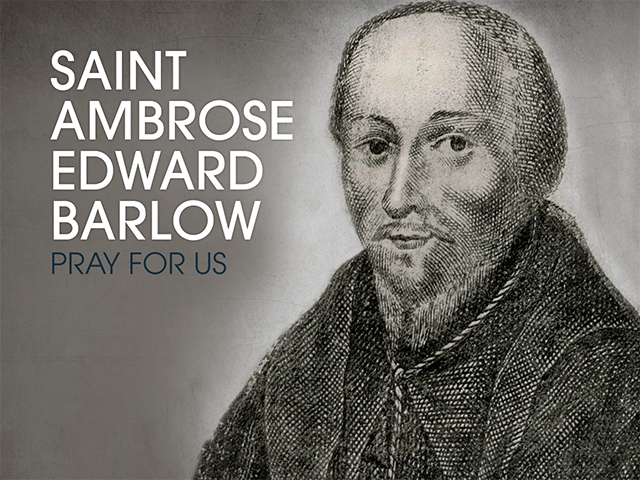



St. Ambrose Edward Barlow (1585-1641) was born near Manchester, England, to a noble family. He was baptized Catholic at his birth, but was raised Protestant when Catholicism was outlawed by the reigning monarchy. His grandfather died while imprisoned for his Catholic faith, and his father had two-thirds of his estate confiscated for refusal to conform to the Church of England. Ambrose returned to Catholicism as an adult, recognized his vocation to the priesthood, and traveled to France to enter seminary. He was ordained in 1617 in the Order of St. Benedict. He returned to England to minister to underground Catholics in his native south Lancashire for 24 years, being financially supported with a pension arranged by his grandmother. Ambrose said Mass daily and administered the sacraments secretly to avoid detection by the authorities. He was arrested four times during his priesthood, each time being released without charge. When the king issued a decree that all Catholic priests should immediately flee the country or be arrested and condemned as traitors, St. Ambrose chose to stay, reasoning that he could not die a better death than to be martyred for being a Catholic priest. On April 25, 1631, just as he ended Easter Sunday Mass at Morley Hall near Manchester, he was arrested by a 400-strong armed mob led by the local Anglican vicar. He freely admitted to the charge of being a Catholic priest, and gave a defense of the true faith before his judge. He was sentenced to be hanged, drawn, quartered, and boiled in oil on September 10, 1641. His dead body was publicly displayed on a pike as a warning to other Catholic priests. St. Ambrose Edward Barlow is one of the Forty Martyrs of England and Wales. His feast day is September 10th